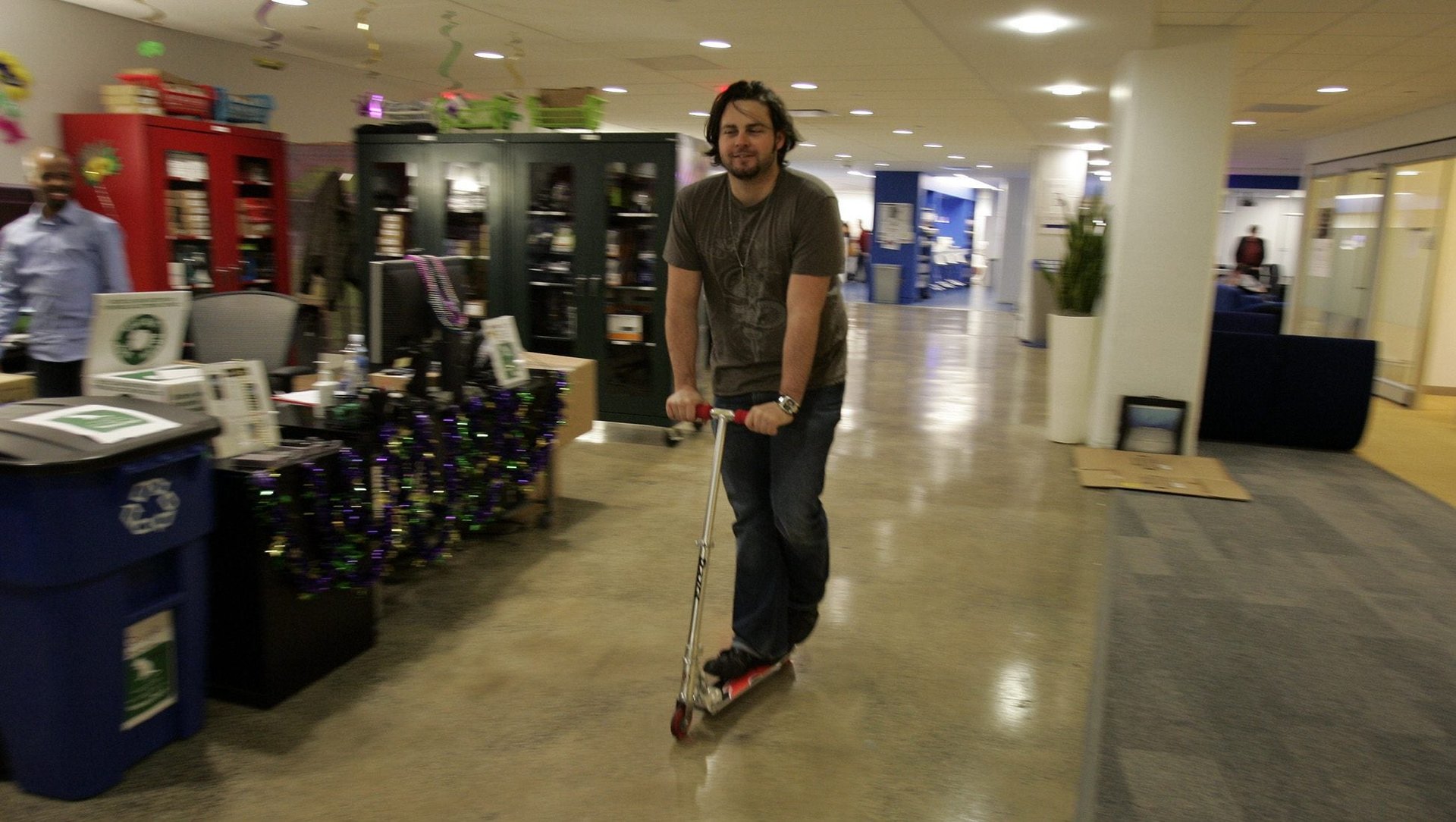Productivity hacks are built for bros
In our work-obsessed culture, productivity “hacks” are like a virtual currency. The internet is rife with shortcuts to help you crush it like a pro, climb the ladder, network like no one’s watching. They’re made for “doers” and self-professed “extremely busy people.”


In our work-obsessed culture, productivity “hacks” are like a virtual currency. The internet is rife with shortcuts to help you crush it like a pro, climb the ladder, network like no one’s watching. They’re made for “doers” and self-professed “extremely busy people.”
A hack might involve a stopwatch, an app, or a new habit, like “batching” similar tasks, but the point is always to get more—and more, and more—done in less time.
These hacks aren’t as innocent as they seem. Productivity hacks can also be read as cultural signposts, reminders that the clock is ticking, your output is being measured (as employees’ every move becomes increasingly quantifiable), and you’re now expected to work all the time, from anywhere. The embedded message: If you just do your work, without optimizing your operations and maximizing efficiency, you’ll be left behind as your peers advance.
And hacks prop up the myth of the meritocracy. The promise that makes them so attractive is that you can tweak your way to the top, if you just employ enough micro-strategies—except we know that simply isn’t true.
But the most irksome problem with productivity hacks: they represent cultural ideals about work that are decidedly masculine. (To be clear, I mean the social construct of masculinity that young boys begin absorbing at preschool levels, when studies show that fathers are more likely speak to them using words about achievement, like “win” and “proud.”)
This makes sense when you consider that, like gamified dating apps and other customs that have infiltrated our lives, the hacks grew out of the culture of “tech bros,” the usually young, wealthy men who work in the tech industry, worship tech’s founder heroes, and mix frat boy brutishness with a nerdy dedication to “ideating” for their startup. Hacks reflect the creeping of tech bros’ work hard, play hard ethos into most other industries, and they naturally perpetuate beliefs about the ideal employee that give higher value to masculine traits, defined in one study on gender in the IT field as: careerism, competitiveness, aggression, individualism, and self-sufficiency.
Many hacks aim to cultivate just those traits while limiting or banishing the kind of “soft” skills — empathy and collectivism—that are associated with women. For instance, the “network while you eat” hack allows a person to eat (if not avoiding the “friction” of needing to go find sustenance altogether by chugging a Soylent at one’s desk) while tending to a careerist goal. Others might see the daily lunch break as a precious window of unstructured time, or a chance to read a book or check in with friends or family.
Even when the hack recommends “unplugging,” or sleeping more, it’s strategic: Forced downtime in the service of ultra-performance when you’re back “on.” Food and vacations are recommended as tools to help you get stuff done. In an interview about productivity tips last year, GQ magazine asked Charles Duhigg, author of The Power of Habit, about the single tool that has most helped him to succeed. His answer:
“I feel like I stumbled into this solution. I met my wife in college. And marrying someone who is temperamentally different than me, and deciding early on that I needed one person in my life whom I would be completely honest with and she would tell me when I was full of shit or being an asshole—that, I think, is the most important thing.
Granted, this is not the sexism of the 1950s—where the wife’s role was to always support the husband’s career goals—but when a spouse can be named a top “tool” for success, we’ve probably reached peak productivity hack.
As it happens, we’re in the middle of a dark moment for today’s tech culture, as the implicit biases against women in the field become explicit and exposed. Stanford University’s Cecilia Ridgeway, a professor of social psychology and sociology of gender, has theorized about the mechanisms that allow gender inequality to persist despite societal counter winds, including laws that protect women at work, and rhetoric about diversity and flextime. She found that background gender frames influence behavior within companies, regardless of their organizational structure.
In a public lecture about her book, Framed By Gender: How Gender Inequality Persists in the Modern World, Ridgeway explained that startups in both the life and information technology sciences typically develop relatively flat structures rather than stacked hierarchies, but in the former industry, gender is less salient and women are seen as more competent. The IT sciences, on the other hand, are still strongly sex-typed in favor of men, she said, so “stronger implicit biases make it harder for women to take advantage of the flexible structure.”
One reason tech culture has a particular problem with gender may be related to its toxic habit of mythologizing genius. In 2015, a team of researchers led by Princeton University philosophy professor Sarah-Jane Leslie, found that women are “underrepresented in fields whose practitioners believe that raw, innate talent is the main requirement for success, because women are stereotyped as not possessing such talent.” Productivity hacks, one could argue, are a symptom of our new but still unequal era.
To be fair, hacks can be clever and useful, like the Pomodoro Technique, and some can probably help a person—of any gender—make more sense of their lives, as the Personal Kanban method promises. But the vast majority of these hacks seem to speak to a culture that defines success by career achievement and makes dedication to work the ultimate virtue.
The traits and concerns we prize should be wider than that.